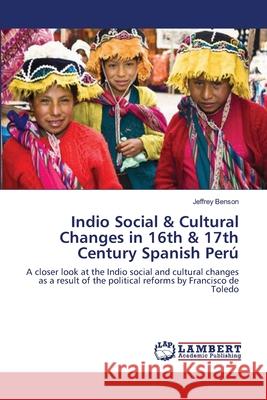Indio Social & Cultural Changes in 16th & 17th Century Spanish Perú » książka
Indio Social & Cultural Changes in 16th & 17th Century Spanish Perú
ISBN-13: 9783659336843 / Angielski / Miękka / 2013 / 52 str.
Prior to the reforms of Francisco de Toledo, political and economic corruption was already in motion. After Toledo's reforms were instituted, as the evidence will show, royal officials, clergy, entrepreneurs and even kurakas (local native chieftains) did what they could to take advantage of the system and profit. Amidst the expanding colonial society, an unexpected social backlash developed amongst the Indios. To a great degree these social changes can be attributed to Francisco de Toledo's reforms, which enlarged the overall number of royal and local officials, who desired to manipulate the system and enrich themselves. Toledo's reforms permitted a larger majority of Spaniards to exploit the Indios' productivity, increase their revenues and appease the crown. To some degree, both directly as well as indirectly, the reforms encouraged the Indios to assimilate, adapt, change or hide in order to escape the obligations of the Indio caste system.
Prior to the reforms of Francisco de Toledo, political and economic corruption was already in motion. After Toledos reforms were instituted, as the evidence will show, royal officials, clergy, entrepreneurs and even kurakas (local native chieftains) did what they could to take advantage of the system and profit. Amidst the expanding colonial society, an unexpected social backlash developed amongst the Indios. To a great degree these social changes can be attributed to Francisco de Toledos reforms, which enlarged the overall number of royal and local officials, who desired to manipulate the system and enrich themselves. Toledos reforms permitted a larger majority of Spaniards to exploit the Indios productivity, increase their revenues and appease the crown. To some degree, both directly as well as indirectly, the reforms encouraged the Indios to assimilate, adapt, change or hide in order to escape the obligations of the Indio caste system.











